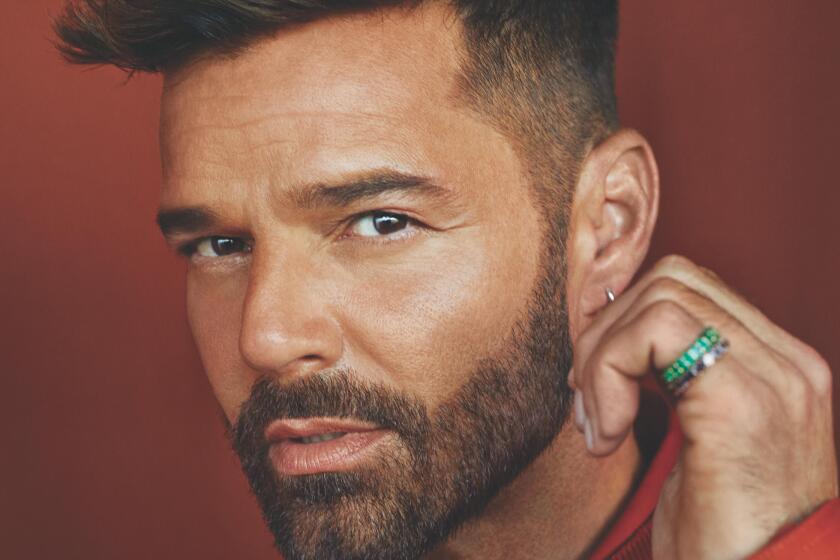Grokster Surrenders to Labels
The entertainment industry’s efforts to turn enemies into allies in its fight against online piracy got a boost Monday when file-sharing service Grokster Ltd. said it would become a legal source of songs and movies.
Grokster’s conversion settles a landmark case brought against it by the major record labels and Hollywood studios, which have long argued that their profits are siphoned by the widespread copying enabled by services such as Grokster, EDonkey and Kazaa.
The move caps a string of key legal and political victories for the entertainment industry, which now is under pressure to keep up its momentum. Unless industry-backed services offer compelling alternatives to illegal networks -- which offer thousands of songs and movies for free -- they are unlikely to make a significant long-term dent in online bootlegging.
“If Hollywood doesn’t act now, a year from now this decision won’t matter,” said former Grokster President Wayne Rosso, now working on a legal, music-industry-sanctioned file-sharing service called Mashboxx. “Right under everybody’s noses, ultra-fast networks are getting rolled out. Suddenly, a DVD will be downloaded in a matter of seconds.”
The Supreme Court ruled in June that file-sharing firms could be held liable for piracy committed by their users, exposing the companies to potentially huge copyright infringement judgments. Since then, a number of firms have disavowed their pasts and joined the entertainment industry in trying to persuade people to pay for the music and movies they download.
Like most file-sharing software, Grokster allowed millions of users to scan one another’s hard drives for songs, video clips and games that they could then transfer to their own computers. Proponents of so-called peer-to-peer technology advocate its legitimate uses, but in actual practice the bulk of file-sharing traffic is in pirated goods.
In addition to stopping distribution of its software, Grokster agreed to pay $50 million, a token gesture because the company reported few assets other than its name. Grokster’s audience has dwindled in recent years as users shift to more powerful tools such as BitTorrent.
Grokster’s codefendant in the case, Woodland Hills-based StreamCast Networks Inc., said it planned to keep fighting the entertainment industry in court.
Nonetheless, Grokster’s surrender cheered entertainment industry leaders who have waged an aggressive legal battle against file-sharing services and the people who use them. Thousands of people have been sued for copyright infringement over the last two years.
At the same time, the industry has worked with law enforcement officials around the world to stop the proliferation of counterfeit audio and video discs that can be had for a small fraction of their retail price in market stalls and back alleys.
Emboldened by recent victories in the courts and in Congress, studio heads, music publishers and record label executives said Monday that the momentum was shifting away from the free-for-all that began in 1999 with the debut of Napster. The challenge now, they acknowledged, is to roll out services that are easy to use and fairly priced.
“Grokster closes one chapter and lets another open,” said Mitch Bainwol, chief executive of the Recording Industry Assn. of America.
Said Motion Picture Assn. of America Chief Executive Dan Glickman: “It’s clear the digital revolution is at hand. We know that there is a dramatic need for what I call hassle-free, reasonable-cost online services. We are encouraging that.”
As evidence, music insiders point to the recent emergence of legal peer-to-peer services, such as the launch last month of IMesh, a service that formerly allowed users to trade copies of essentially any song and now filters out unauthorized tunes. Pioneering Napster is now a legitimate service. Operators of the EDonkey file-sharing network in September promised to convert to a legal service. And Kazaa, long one of the most popular ways to get pirated goods, was ordered by an Australian court to make its system legal.
Some advocates of peer-to-peer networks lamented that the technology had been so demonized by the entertainment industry that it might take years to find a legitimate niche.
Monday’s agreement is “another nail in the coffin for a very, very promising technology,” said Peter Fader, a marketing professor at the University of Pennsylvania’s Wharton School. “It’s sad that [peer-to-peer networking] has been besmirched as equaling illegal.”
How Hollywood will wield its newfound power remains to be seen. Even as they encourage consumers to use legal online services, some record label executives are agitating to raise the prices of downloads sold at Apple Computer Inc.’s iTunes Music Store, by far the largest seller of legal music online.
Music companies also have recently included technology on compact discs to prevent copying, raising an outcry among privacy advocates and consumers.
The recording industry has licensed music to download services such as iTunes and subscription services offered by Napster, Real Networks Inc. and Yahoo Inc. Walt Disney Co. has made some of its ABC network’s hit shows available for paid download through a new iTunes video service. General Electric Co.’s NBC Universal lets Web surfers watch complete nightly news broadcasts on their computers, and others are offering clips for mobile phones.
“If all you focus on is enforcement, you’re playing whack-a-mole,” said Hilary Rosen, a media-company consultant and former head of the recording industry association. “That’s why it’s smart for the music companies to support investment in a few bigger peer-to-peers, to see if there is a business there, because in the end it’s all about giving consumers what they want. There have been too many years of not enough options for consumers.”
More to Read
The biggest entertainment stories
Get our big stories about Hollywood, film, television, music, arts, culture and more right in your inbox as soon as they publish.
You may occasionally receive promotional content from the Los Angeles Times.






